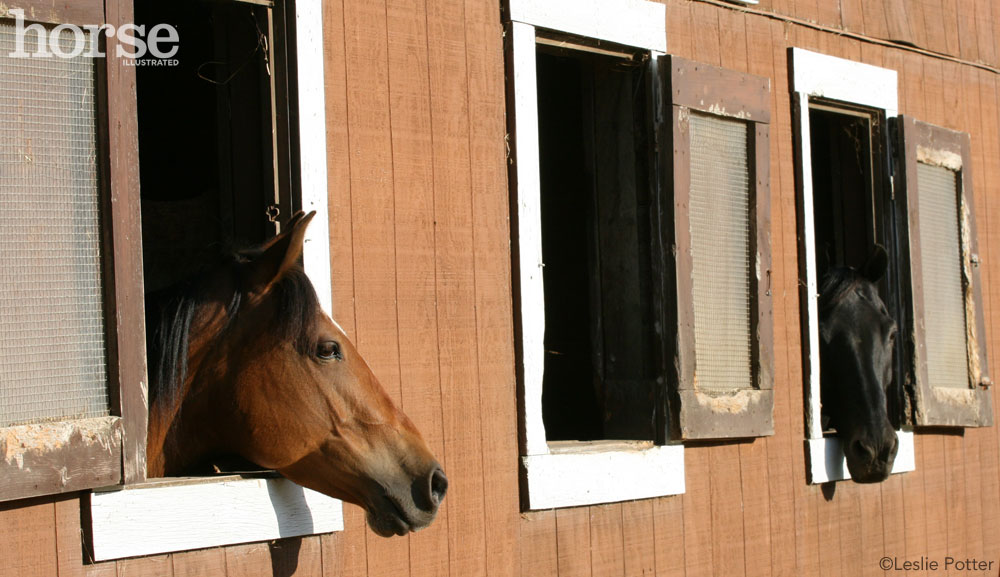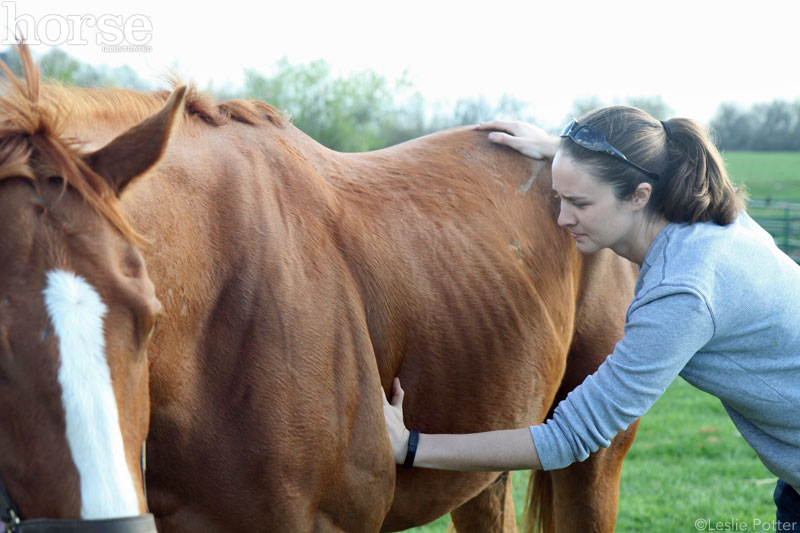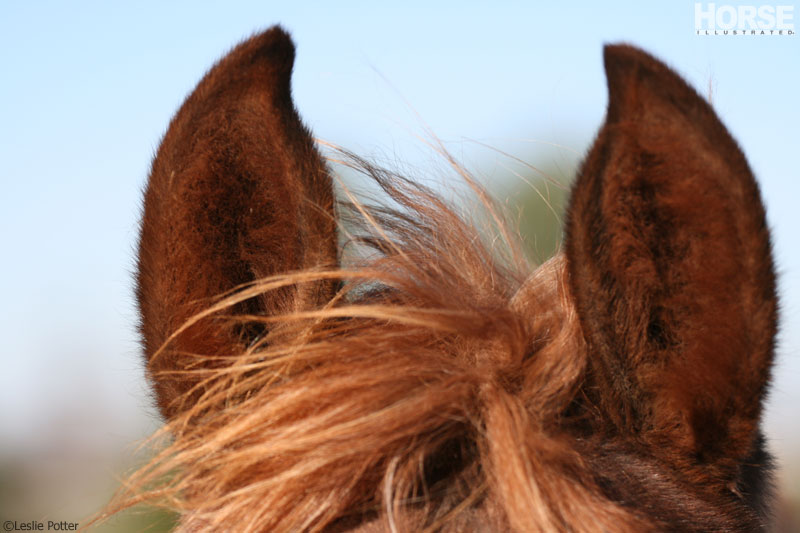In our Ask the Vet column, Dr. Lydia Gray answers your horse-health questions at horseillustrated.com/AskTheVet. Got a question for Dr. Gray? Send it to hc-editor@i5publishing.com and use subject line “Ask the Vet.”
Q: Lately my gelding has started coughing when I first take him out of his stall and start warming up. He is kept in his stall about 12 hours every day. The barn he stays in is very open and has excellent ventilation. Is it possible that his hay is too dusty or is there something else that could be causing this?

A: Yes, it is possible that your horse is reacting to the dust, mold, or other irritants he’s breathing in with his hay or in the barn, even though the hay may be of high quality and the barn has excellent ventilation. I strongly urge you to contact your veterinarian and have him or her examine your horse as well as take a detailed history from you and perform a thorough walk around the barn to get to the bottom of this so that the correct management changes and treatment protocol can be started as quickly as possible. Whether the problem is allergies, infection, or some other disorder, your vet is the best resource to uncover the primary issue and get you started on the path forward!
The condition that comes to mind as I read your question—and what you’ll want to discuss with your vet–is Inflammatory Airway Disease or IAD, which occurs in young to middle-aged horses. Untreated, some experts believe it may lead to Recurrent Airway Obstruction or RAO, better known as “heaves,” a more severe problem in middle to older-aged horses sometimes likened to asthma in humans.
According to Dr. Melissa Mazan from Tufts University, IAD is a disease of young, athletic horses characterized by low-grade inflammation, low-grade airway obstruction, and airway hyper-responsiveness. Owners notice an intermittent cough, nasal discharge, and mild exercise intolerance. IAD is best diagnosed by looking at fluid obtained from the lower airways and best managed by controlling the environment, with medication sometimes also being helpful.
While you’re scheduling your vet appointment, take as many of these steps as you can to improve your horse’s “breathing zone,” which is the two-foot sphere around your horse’s nose from where he draws his breath:
- Soak or steam his hay
- Provide forage as chopped hay, cubes, pellets or in the form of a complete feed
- Feed from a container on the ground so any airway mucus drains
- Turn out as much as possible
- Use only dust-free bedding such as paper, cardboard, or corn cobs, not straw
- Provide as much ventilation as possible when the horse must be stalled
- Do not sweep or clean the barn or aisle when the horse is inside
I know for my own horse which has been diagnosed with this condition that he is very quick to react to any hay in the trailer when I transport him. So any hay that is going along on the trip gets tossed in the bed of my truck and he munches on soaked beet pulp during the ride. Otherwise I unload a coughing horse with mucus draining out of both nostrils who isn’t fit for a show, lesson, or even trail ride.






